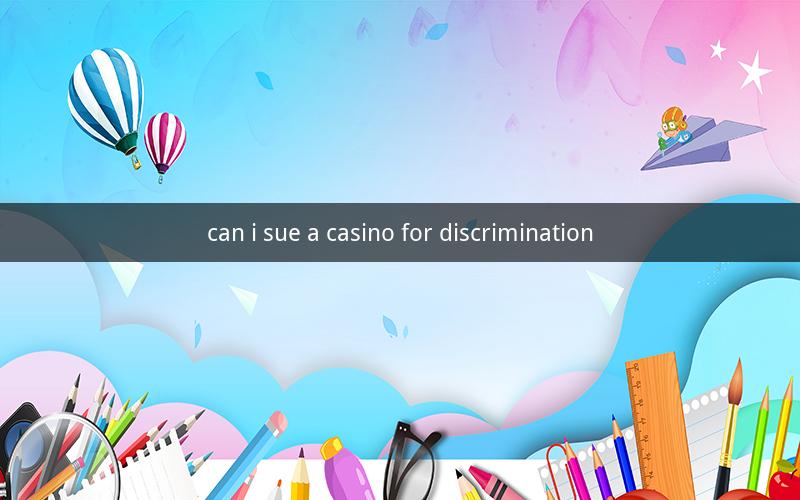
Table of Contents
1. Understanding Discrimination in Casinos
2. Types of Discrimination in Casinos
3. Legal Grounds for Suing a Casino
4. Gathering Evidence of Discrimination
5. Filing a Lawsuit Against a Casino
6. The Legal Process
7. Settlements and Verdicts
8. The Impact of Lawsuits on Casinos
9. Preventing Discrimination in Casinos
10. Conclusion
1. Understanding Discrimination in Casinos
Discrimination in casinos can manifest in various forms, from explicit acts of prejudice to subtle exclusionary practices. Understanding what constitutes discrimination is crucial for individuals who believe they have been wronged.
2. Types of Discrimination in Casinos
Discrimination in casinos can include but is not limited to:
- Racial discrimination: Refusing service or treating patrons differently based on race.
- Gender discrimination: Denying opportunities or services based on gender.
- Age discrimination: Discriminating against patrons based on age, particularly in age-restricted areas.
- Religious discrimination: Refusing service or creating an environment that is hostile to a particular religion.
- Sexual orientation discrimination: Discriminating against patrons based on sexual orientation.
3. Legal Grounds for Suing a Casino
To sue a casino for discrimination, you must have legal grounds. These can include:
- Title VII of the Civil Rights Act of 1964: Prohibits discrimination based on race, color, religion, sex, or national origin.
- Americans with Disabilities Act (ADA): Protects individuals with disabilities from discrimination.
- Equal Protection Clause: Guarantees that all individuals are treated equally under the law.
4. Gathering Evidence of Discrimination
Collecting evidence is essential to build a strong case. This can include:
- Witness statements: Accounts from individuals who witnessed the discrimination.
- Incident reports: Internal reports of the incident, if available.
- Security footage: Video evidence of the discrimination.
- Correspondence: Emails, texts, or other written communication that supports your claim.
5. Filing a Lawsuit Against a Casino
Once you have gathered sufficient evidence, you can file a lawsuit. This process typically involves:
- Hiring an attorney: A lawyer can help navigate the legal process and represent your interests.
- Drafting the complaint: The complaint outlines your claims and the evidence supporting them.
- Serving the complaint: The complaint must be legally served on the casino.
6. The Legal Process
The legal process can be complex and lengthy. It typically includes:
- Discovery: Both parties exchange information and evidence.
- Motions: The court may consider motions to dismiss or to exclude certain evidence.
- Settlement negotiations: Many cases are settled before trial.
- Trial: If the case goes to trial, a judge or jury will decide the outcome.
7. Settlements and Verdicts
Settlements are common in discrimination cases. If a settlement is reached, the terms are confidential. If a verdict is reached, it can be appealed.
8. The Impact of Lawsuits on Casinos
Lawsuits can have significant financial and reputational consequences for casinos. They may also prompt changes in policies and practices to prevent future discrimination.
9. Preventing Discrimination in Casinos
Casinos can take steps to prevent discrimination, including:
- Implementing anti-discrimination policies.
- Training staff on diversity and inclusion.
- Establishing a clear process for reporting discrimination.
- Conducting regular audits to ensure compliance.
10. Conclusion
Suing a casino for discrimination is a serious matter that requires careful consideration and preparation. Understanding the legal grounds, gathering evidence, and navigating the legal process are essential steps in seeking justice.
Questions and Answers
1. Q: Can I sue a casino for discrimination based on my sexual orientation?
A: Yes, discrimination based on sexual orientation is illegal under federal law.
2. Q: What should I do if I believe I've been discriminated against by a casino?
A: Document the incident and seek legal advice from an attorney specializing in discrimination cases.
3. Q: How long do I have to file a lawsuit against a casino for discrimination?
A: The statute of limitations varies by state and the specific legal claim, so it's important to consult with an attorney.
4. Q: Can a casino be held liable for discrimination if it was not aware of the incident?
A: Yes, a casino can be held liable if it had knowledge of a discriminatory practice and failed to take action to prevent it.
5. Q: What types of damages can I recover in a discrimination lawsuit against a casino?
A: You may be eligible for compensatory damages, which can include monetary compensation for the harm you suffered, and punitive damages, which are intended to punish the casino for its actions.
6. Q: Can I sue a casino for discrimination if I was not a patron but witnessed discrimination against someone else?
A: Generally, you would need to be a victim of discrimination yourself to file a lawsuit. However, there may be exceptions depending on the specific circumstances.
7. Q: How can I prove that a casino discriminated against me?
A: You can prove discrimination through witness testimony, incident reports, security footage, and other evidence that supports your claim.
8. Q: Can a casino be fined for discrimination?
A: Yes, a casino can be fined if it is found liable for discrimination in court or if it violates federal or state anti-discrimination laws.
9. Q: What if the casino settles with me instead of going to trial?
A: If a settlement is reached, the terms are confidential. You may be eligible for monetary compensation and other relief.
10. Q: Can I sue a casino for discrimination if I was refused service due to my appearance?
A: Yes, discrimination based on appearance, such as hairstyle or clothing, can be grounds for a lawsuit.